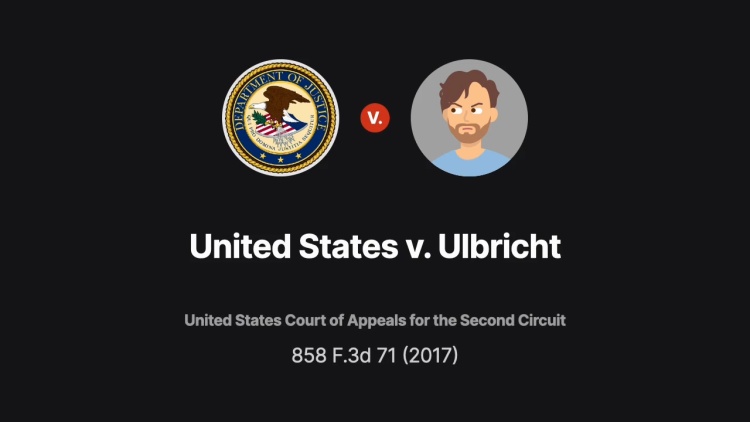United States v. Ulbricht
United States Court of Appeals for the Second Circuit
858 F.3d 71 (2017)

- Written by Alex Ruskell, JD
Facts
The government believed that Ross Ulbricht (defendant) used the alias Dread Pirate Roberts to run Silk Road, an online marketplace for illegal goods and services. The police arrested Ulbricht and received a warrant to search the laptop that they found in his possession. The warrant application listed the crimes charged, described Silk Road and Dread Pirate Roberts, included information linking Ulbricht to Dread Pirate Roberts, and showed that Ulbricht’s laptop likely had evidence of the charged offenses. The affidavit allowed officers to use keywords and read the first few pages of files because the officers did not know under what names Ulbricht might store his files. The warrant also allowed officers to search computer files for linguistic similarities that might show Ulbricht was in fact Dread Pirate Roberts. The ensuing search revealed a great deal of evidence against Ulbricht leading to his conviction for computer crimes. Ulbricht appealed to the United States Court of Appeals for the Second Circuit, arguing that the special nature of computers required a search warrant to describe the things to be seized with more particularity than in a normal search warrant.
Rule of Law
Issue
Holding and Reasoning (Lynch, J.)
What to do next…
Here's why 907,000 law students have relied on our case briefs:
- Written by law professors and practitioners, not other law students. 47,100 briefs, keyed to 996 casebooks. Top-notch customer support.
- The right amount of information, includes the facts, issues, rule of law, holding and reasoning, and any concurrences and dissents.
- Access in your classes, works on your mobile and tablet. Massive library of related video lessons and high quality multiple-choice questions.
- Easy to use, uniform format for every case brief. Written in plain English, not in legalese. Our briefs summarize and simplify; they don’t just repeat the court’s language.





